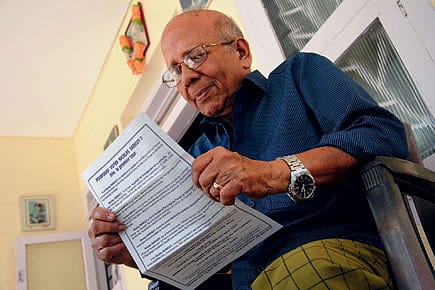Why Mahe matters to Elysée Palace

Several ‘French Malayalees’ are voting long distance in France’s presidential election
KOCHI ~ Nearly 40 people in the town of Mahe, in Kerala’s Kannur district, are voting in an election. They are not electing a candidate from the ruling Congress-led UDF (United Democratic Front) or the opposition LDF (Left Democratic Front). They are voting for either Nicolas Sarkozy or François Hollande.
That’s right. These people are participating long distance in the French presidential poll. Mahe, though geographically in Kerala, is actually under the Union Territory of Puducherry, which was a French colony till 1954. The first round of voting was on 22 April. The second round is on 6 May.
There are 60 French citizens in Mahe. Of these, 40 are on France’s current voters list. But many could not exercise their voting rights in the first round as the polling centre shifted from the French consulate in Puducherry to Chennai. The French consulate in Puducherry had been a polling station from 1962 till 2007. Kerala’s Malayalee French citizens used to cast their vote by ‘procuration’. That is, by assigning their power of attorney to friends or relatives in Puducherry.
This time, however, the change of the polling centre caught them unawares. “And not everyone has friends or relatives in Chennai,” says Panangadu Balan, former president of Union des Francais de Mahe, an organisation of French nationals in Mahe. Luckily, the 74-year-old Balan did not miss his vote. His daughter-in-law lives in Chennai. Panangadu is talking to people in Chennai to ensure that others too can vote in the second round on 6 May.
Rule Americana
16 Jan 2026 - Vol 04 | Issue 54
Living with Trump's Imperium
Balan says that both Sarkozy and Hollande have supporters in Mahe (but not the extreme right-wing leader Marine Le Pen, who was ousted in round one). Both of them, keen on wooing this small group of voters, have sent them pamphlets in French requesting support.
South India has nearly 5,300 residents on France’s voters list. Unlike Kerala’s Pakistani citizens, they face no hassles from Indian authorities. They own land, have ration cards, and do not have to present themselves at local police stations regularly.
